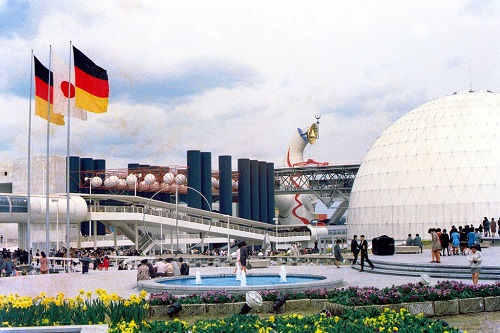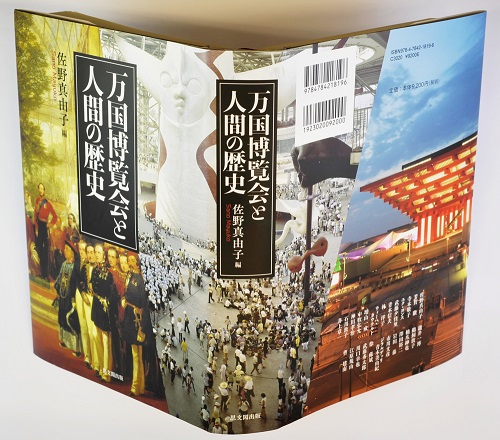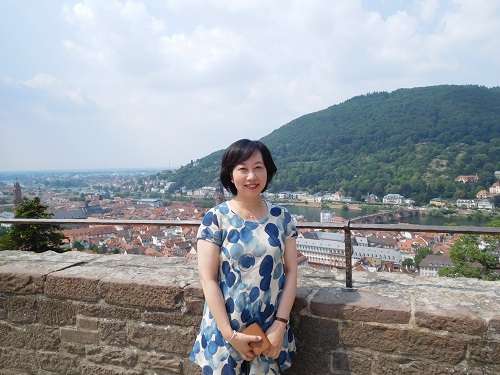Five things you should know about Expos, now that Osaka has won the bid to host the 2025 World Expo

Japan has won the bid to bring the 2025 World Expo to an island called Yumeshima in Osaka, a major city in the western part of the country. Final presentations were given on November 23, 2018 in Paris at the headquarters of the Bureau International des Expositions (BIE), which supervises and regulates the World Expos. Osaka ran against Ekaterinburg, in central Russia, and Baku, capital of Azerbaijan, to host the 2025 World Expo.
Having won the bid, Osaka will be hosting the World Expo for the second time, 55 years after the first Osaka Expo in 1970. So how are World Expos different from the business fairs or trade fairs often held by corporate entities? And how long have Expos been going on? We asked Mayuko Sano, professor of Kyoto University’s Graduate School of Education, to share with us the history of international exhibitions and their significance in today’s context.
Please tell us about the nature of World Expos.
Expos are organized by states and are the only official events of the international community where countries are invited through diplomatic channels. The BIE, established in 1931, sanctions Expos on the basis of a multilateral treaty signed in 1928 (Convention Relating to International Exhibitions).
The story goes that the first Expo held in London in 1851 came about on the initiative of Prince Albert, prince consort of Queen Victoria. What was the motive behind early Expos? Were they intended to show off the advanced technology of the British Empire?
No, apparently the initial motive was simpler. Expos are often described as venues meant to advance national prestige in imperialistic terms—which, of course, may have been true in certain times. But the minutes of the London Expo (“The Great Exhibition”) planners’ meetings show that they were interested in arranging for a bold and large exhibition and the showcasing of a variety of goods. So initially, I believe the driving force behind early Expos was a desire to learn about the world as well as to bring in and appreciate artifacts, to place them on exhibit, and introduce them to people. Gathering goods from around the world and demonstrating industrial achievements or the latest technologies naturally led to the boosting of national prestige. That’s how I see it.
Eighty years after the inaugural 1851 Expo in London, Expos came to be based on an international convention. Why did that change come about?
Reading records from those times, it seems that Expo insiders were eager to differentiate their events from commercial trade fairs. In the early days, states had been the only entities that could handle such a large event—involving gathering and exhibiting items from around the globe—both in terms of economic power and human resources. Gradually, private actors, too, gained the capability to hold similar events particularly for commercial purposes. Eventually governments signed an international convention aiming to establish Expos as an official, non-commercial institution.
The Expo 1970 Osaka was the first-ever Expo that was held in Japan. Were there any efforts before that to host an Expo in Japan?
Yes, there were. One such effort was made during the Meiji era (1868–1912). Sometime later, a more substantive plan was launched for an Expo to be held in 1940 in Tokyo, but it never happened as the Sino-Japanese War (1937–1945) broke out. Preparations for the 1940 Expo had reached the point of placing admission tickets on sale. As it happened, the organizers decided to “postpone” this Expo instead of canceling it. The happy outcome of that decision was that the ticket holders for the 1940 Expo were allowed to enter the 1970 Expo. To learn more about the 1940 Expo, I encourage people to refer to the book chapter (photo below) by my colleague Kazushige Mashimaya in our volume Bankoku hakurankai to ningen no rekishi [Expos and Human History].
The 1970 Osaka Expo was the first Expo hosted in Asia. In retrospect, what was the historical significance of that event?
In my view, each Expo reflects the structure of the international community and its issues of the time; the Expo 1970 Osaka vividly reflected structural changes in the international community. In the 1960s and 1970s, a large number of former colonies achieved independence and significantly boosted the number of nation-states in the world. In other words, there emerged a significant number of potential hosts and new official Expo participants.
It was amid such times that former British protectorate Canada hosted an Expo in Montreal in 1967 and an Expo was brought to Osaka for the first time in Asia in 1970. As the Osaka Expo theme—“Progress and Harmony for Mankind”— suggests, the rise of new nations was about to dramatically change the world, which had been controlled by a limited number of the Great Powers. It is thus important to place the Expo 1970 Osaka in the context of world history, although previous discussions have emphasized its significance as marking Japan’s economic development and joining the group of advanced nations.
The Expo 1970 Osaka was also notable for the role it played in developing talented young people who have been driving forces in various sectors of Japan since then. It offered opportunities for many of today’s best-known Japanese artists, architects, fashion designers and other professionals, early in their careers to establish their reputations.
Bringing the Expo 2025 again to Osaka will be an occasion for younger members of Japanese society to get involved in preparations, thereby gaining platforms and opportunities for fulfilling their potential. I have great hopes that hosting this Expo will bring about leaders who will direct and inspire the country for the rest of the twenty-first century.
Expos always vividly reflect the global political structure, says Professor Sano. In recent years we have seen the rise of U.S. President Donald Trump’s administration and the decision by the UK, where the Expos began, to leave the European Union. There is a growing trend toward protectionism, with countries prioritizing their own profit and prosperity over that of other nations or the international community. All eyes are on what kind of world will be portrayed in the Expo Dubai 2020, Buenos Aires 2023, and Osaka-Kansai 2025.

Expo 1970 Osaka (CCBY-SA2.0 m-louis)

Front cover of the book Bankoku hakurankai to ningen no rekishi [Expos and Human History] (SANO Mayuko ed., Shibunkaku, 2015). The publication is a product of a joint research Professor Sano has been conducting since 2010 with interdisciplinary scholars from Japan and overseas, and various professionals who are involved in the planning and organization of Expos.
Details of Osaka-Kansai World Expo
Period: May 3 - November 3, 2025
Venue: Yumeshima (155 ha), Osaka
Theme: Designing Future Society for Our Lives
World Expos previously held in Japan*
Japan World Exposition Osaka 1970
Theme: Progress and Harmony for Mankind
International Ocean Exposition, Okinawa 1975
Theme: The Sea We Would Like to See
International Exhibition, Tsukuba Japan 1985
Theme: Dwellings and Surroundings – Science and Technology for Man at Home
International Garden and Greenery Exposition, Osaka, Japan, 1990
Theme: The Harmonious Coexistence of Nature and Mankind
EXPO 2005, Aichi, Japan
Theme: Nature's Wisdom
*The 1970 World Expo in Osaka is the only event thus far regarded as a large-scale International Registered Exhibition (called “General Exhibitions” at the time). Expos consist of two types: International Registered Exhibitions and International Recognized Exhibitions. Which category a particular Expo falls under is decided comprehensively based on the elements such as the duration of the event and the size of the venue. The 2025 World Expo in Osaka, Kansai will be categorized as an International Registered Exhibition.

Mayuko Sano, Professor, Graduate School of Education, Kyoto University / Visiting Professor, International Research Center for Japanese Studies
Specializing in the cultural history of diplomacy, Sano has a particular interest in international expositions. She received her MPhil (in International Relations) from the University of Cambridge and PhD from the University of Tokyo. After serving on the staff of the Japan Foundation and the United Nations Educational, Scientific and Cultural Organization (UNESCO), she was associate professor at Shizuoka University of Art and Culture and the International Research Center for Japanese Studies before assuming her current position in 2018. Bankoku hakurankai to ningen no rekishi [Expos and Human History] (SANO Mayuko ed., Shibunkaku, 2015) is a product of the joint research she has been conducting since 2010 with interdisciplinary scholars from Japan and overseas, and various professionals who are involved in the planning and organization of Expos.
Text: Ayumi Koso
